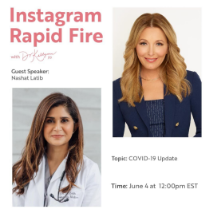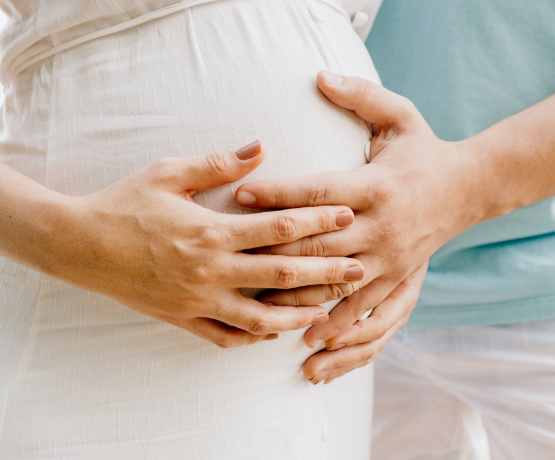7 Simple Steps to Prepare Your Body for Conception
If you’re hoping to get pregnant this year, making sure you have quality eggs is one of the most important things you can do. Egg quality refers to the health of a woman’s eggs, and it generally starts declining around age 30. The good news is there are natural ways you can improve egg quality at any age!
What Impacts Egg Quality?
A variety of factors influence egg quality and ovarian reserve including:
- Age – Fertility gradually decreases (especially after 35) due to less viable eggs
- Genetics and family history – Some women simply have a lower ovarian reserve or poor egg quality based on hereditary factors
- Environmental toxins and pollution
- Stress and cortisol levels
- Diet, nutrition, and body weight
- Existing health conditions – Issues like endometriosis, PCOS, diabetes, and autoimmune issues increase odds of egg abnormalities
The goal is protecting and nourishing those precious eggs so they remain viable for fertilization and implantation.
7 Simple Steps to Improve Egg Quality This Year
1. Eat an Anti-Inflammatory and Nutrient-Dense Diet
The foods you regularly eat provide the actual building blocks for nourishing eggs and surrounding follicle cells.
Diet also influences system-wide inflammation, oxidative stress, hormone balance, and detoxification—all of which impact egg production and development, as studies have shown(1).
In our modern world, convenience foods abound. Mass-produced, pre-packaged snacks and meals may save time, but they typically contain synthetic ingredients, flavorings, and sugar designed to boost palatability and producers’ profits. Plus, as handy as these foods are in our go-go-go lives, they can also create long-term health problems and fertility issues.
A simple upgrade you can make to improve egg quality is to consume a fertility-focused diet teeming with antioxidants, phytonutrients, fiber, clean protein sources, healthy fats, and anti-inflammatory compounds.
Key nutrients for fertility like zinc, B12, vitamin D, selenium, and omega-3 fatty acids build healthy eggs and hormones.
Fertility superfoods to bring into your diet daily include:
- Dark leafy greens
- Broccoli
- Citrus fruits (i.e., oranges, lemons, tangerines, grapefruit)
- Berries (strawberries, blueberries, blackberries are particularly rich in antioxidants)
- Avocado
- Nuts/seeds
- Olive oil
- Salmon
- Bone broth
- Beans and lentils
- Whole grains
- Probiotic-rich foods such as fermented foods (i.e., yogurt, kimchi, sauerkraut, kombucha)
Foods to avoid include sugar, refined carbs, conventionally-raised animal products, trans fats, and excess saturated fats, all of which trigger inflammation, impair detox pathways, and disturb endocrine health—which subsequently damage fragile eggs.
2. Maintain a Healthy Weight
Being over- or underweight can negatively impact ovarian reserve.
Work towards a healthy BMI through diet and regular exercise. Losing just 5% of body weight can restore ovulation for overweight women, according to studies(2).
Achieving an optimal BMI for your body also improves egg quality on a cellular level. Excess body fat and adipose tissue creates heightened inflammation. This exacerbates insulin resistance and oxidative stress damage to delicate eggs.
Additionally, increased estrogen production in heavier individuals can effectively trick the brain. It slows crucial FSH release to stimulate follicle growth. Yet without adequate FSH signals, immature eggs remain inactive and underdeveloped. But as you become more metabolically fit, insulin, testosterone, and estrogen find harmony again, which benefits follicle development and vital egg maturation.
3. Reduce Stress Levels
Stress is the secret enemy of natural conception. It’s so omnipresent that most of us don’t even consider it as a factor in unexplained infertility.
Cortisol from high stress triggers inflammation and hormone imbalance, which can negatively impact fertility.
Beyond directly raising cortisol and inflammation, chronic stress also encourages harmful coping methods, such as excessive alcohol consumption, smoking, emotional eating, relationship discord, and a sedentary lifestyle—all of which can disrupt fertility. While the occasional slip up won’t devastate egg quality immediately, over months and years, the cumulative damage of these unhealthy escapes can create problems.
Getting ahead of stress and actively managing it not only improves your chances of getting pregnant, it’s also ideal for your overall physical and mental health!
Incorporate activities that tap into your parasympathetic nervous system (or, your “rest and digest” function). For example, yoga, meditation, journaling, breathing exercises, and vagus nerve stimulation are all examples of stress-relieving activities.
Getting good sleep also controls cortisol and is helpful for both male and female fertility.
4. Avoid Toxic Exposure From Your Environment
We are constantly surrounded by toxins. From the air we breathe to the water we drink to what we put on our skin, our body’s natural detoxification systems are on overdrive.
To keep your toxic burden low enough to support natural conception, limit exposure to environmental toxins. This includes BPA from plastics, phthalates in cosmetics, heavy metals, unfiltered water, and chemicals at work/in cleaning and personal care products.
Detox regularly through sweat, hydration, and liver support supplements (fun fact: your liver is your main toxin “scrubber” so keeping it in tip top shape is critical!).
5. Boost Nutrients With A Prenatal Multivitamin
While diet should ideally supply all the nutrients essential for fertility, that proves challenging for most modern women. The combination of poor soil quality and inability to consume enough foods to get all the required nutrients means most of us need supplementation.
Take a high-quality prenatal with methylfolate instead of folic acid, plus iron, zinc, CoQ10, vitamin D, DHEA and omega-3’s for optimal egg health.
Why methylfolate over folic acid?
Because methylfolate is the natural, active folate form which is more readily absorbed by the body, and utilized for the vital cell growth and gene expression required for healthy egg development.
By the way, always check with your doctor about supplements before adding them to your routine.
6. Incorporate Fertility-Supporting Herbs and Adaptogens
Our grandmothers and great-grandmothers knew certain plants and herbs affect fertility, but for most women, this insight has gotten lost to the passage of time.
Herbs nourish hormonal balance, circulation, and structural integrity in reproductive tissues.
Some herbs that benefit reproductive health include:.
- Red raspberry leaf – Fortifies the uterus and normalizes cycles
- Stinging nettle and chasteberry – Regulate testosterone, estrogen, and progesterone
- Turmeric and green tea – Provide antioxidant and anti-inflammatory protection
Adaptogens are medicinal plants coming back into the spotlight due to their powerful stress-fighting abilities.
For example, when used daily, ashwagandha lowers cortisol and high stress by up to 30%, according to clinical trials(3).
Maca, an adaptogen from the Andes, alleviates anxiety while enhancing energy, stamina, and libido(4).
These herbs synergistically support female fertility on multiple fronts—hormonal harmony, healthy uterine lining, reducing inflammation and oxidative damage, and stabilizing mood and energy.
Consider developing an easy daily habit of 1-2 restorative herbs and adaptogenic teas or tinctures, and let plants nurture your path to motherhood!
7. Quit Unhealthy Habits and Make Lifestyle Improvements
Our modern, convenience-focused society encourages quite a few unhealthy habits that undermine fertility. Over time, these small daily choices snowball to create poor egg quality, degrade ovarian response, or create other root causes of unexplained infertility.
Protect your precious eggs away from inflammation-fueling vices and toxins. In addition to addressing sleep, stress, and poor diet, eliminating these negative habits can help your egg quality and overall fertility:
- Smoking – Chemicals in cigarette smoke are toxic to eggs and accelerate ovarian aging and depletion; plus, tobacco use lowers implantation success(5)
- Excessive alcohol consumption – Toxins from alcohol impair egg quality; additionally, regular heavy and binge drinking patterns interfere with ovulation, hormone balance, and follicular development
- Recreational drugs – Marijuana, opioids, MDMA, and other illicit drugs compromise eggs through interference with hormones and ovulation(6)
- Excess caffeine – More than 200mg caffeine daily (around 2 cups of coffee) may negatively impact early embryo implantation and viability(7)
Instead, make healthy lifestyle changes that support your fertility.
For example, get 7-8 hours of deep, natural, restorative sleep each night. Exercise moderately, but regularly, to balance hormones. Embrace community, home cooking, and time in nature. Prioritize stress relief however it fits your life; even just deep breaths between tasks can have positive effects.
Developing a few simple, positive rituals you do each day helps bolster your inner reserves protecting those eggs—not to mention, they make you happier and healthier long term!
Conclusion
Take a proactive approach to supporting egg quality at any age. Protecting the quantity and quality of your ovarian reserve gives you the best chances for getting pregnant. Combine dietary improvements, nutrients, detox practices, stress relief, and lifestyle changes for optimal fertility.
Consistency is key, so develop egg-nourishing habits you actually stick with this year!








